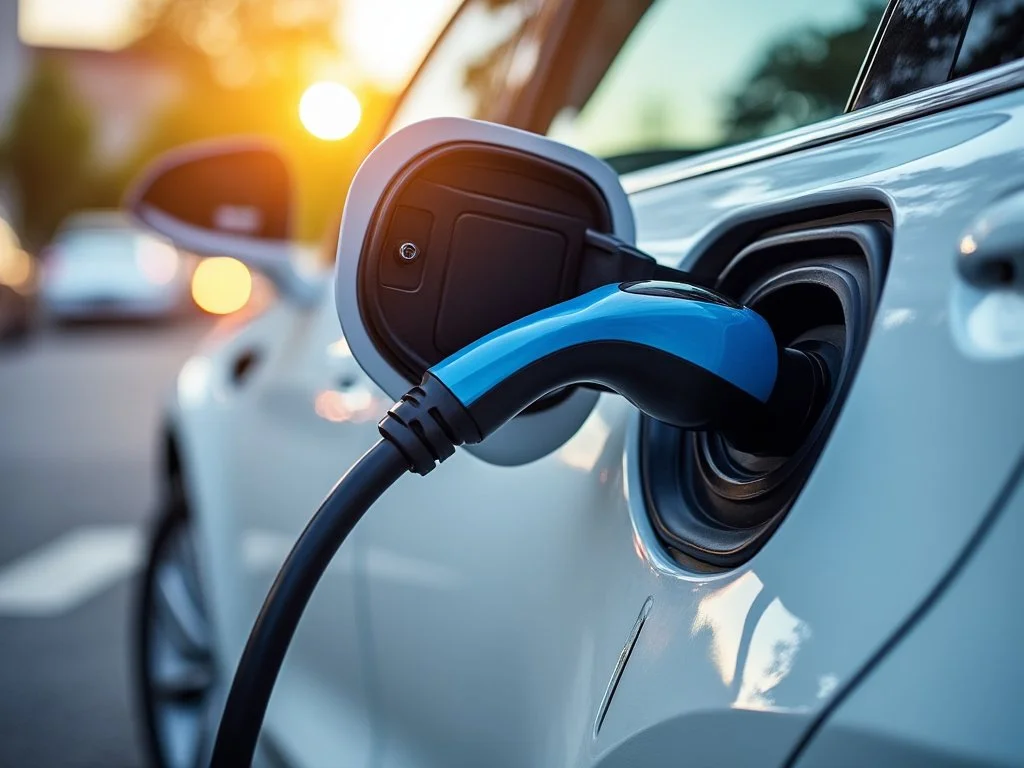How Electric Vehicles are Redefining the Future of Driving
The automotive industry is on the brink of a monumental shift, with electric vehicles (EVs) not just complementing but potentially replacing traditional internal combustion engine vehicles. This transformation isn't just about changing what powers our cars; it's about redefining the very essence of driving. From environmental benefits to technological advancements, here's how EVs are paving the way for a new era in transportation.
The Environmental Imperative:
One of the most compelling arguments for EVs is their environmental impact. Posts on X highlight a growing awareness of EVs' role in reducing carbon footprints. While some skepticism exists about the true green credentials of EVs, especially concerning battery production and disposal, the consensus leans towards EVs being a significant step forward in reducing vehicle emissions. This shift is not just about cleaner air; it's about reshaping urban landscapes, potentially reducing noise pollution, and fostering a more sustainable lifestyle.
Technological Leap Forward:
EVs aren't just about being eco-friendly; they're at the forefront of automotive technology. The integration of electric powertrains with advanced software has led to features like over-the-air updates, enhancing vehicle performance and adding new functionalities without a trip to the dealership. Moreover, the instant torque provided by electric motors has redefined performance, with even entry-level EVs offering acceleration that rivals high-performance gas cars. This technological leap is also evident in discussions around battery technology, where advancements promise longer ranges, faster charging, and eventually, more affordable EVs.
Infrastructure and Convenience:
The conversation around EVs often circles back to infrastructure, particularly charging networks. X posts reflect both optimism and frustration about the current state of charging stations. However, the trend is clear: investment in charging infrastructure is on the rise, with visions of a future where charging is as ubiquitous as refueling. This infrastructure isn't just about convenience but also about integrating EVs into broader smart city concepts, where vehicles could communicate with the grid for optimal energy use.
Economic and Market Shifts:
The economic implications of EVs are profound. From job market transformations in automotive manufacturing to the potential for new industries around battery recycling and electric infrastructure, the shift to EVs is reshaping economies. Market dynamics are also evolving, with discussions on X about how traditional automotive giants and new players like Tesla are navigating this new landscape, from production strategies to consumer financing models.
Challenges and the Road Ahead:
Despite the optimism, challenges like range anxiety, the environmental impact of battery production, and the need for a global recycling infrastructure for batteries are frequently debated. These issues are not insurmountable but require innovation, policy support, and consumer education. The future might see smaller, more efficient EVs alongside larger models, suggesting a diversification in vehicle types that could address some of these concerns.
Electric vehicles are not just redefining driving; they're part of a broader technological and cultural shift towards sustainability, efficiency, and connectivity. The future of driving, as reflected in the discussions on platforms like X, is one where EVs are central, promising not just a change in how we move but in how we live, work, and interact with our environment. This transformation is underway, with each electric mile driven paving the way for a future where the road ahead is cleaner, quieter, and more connected than ever.

